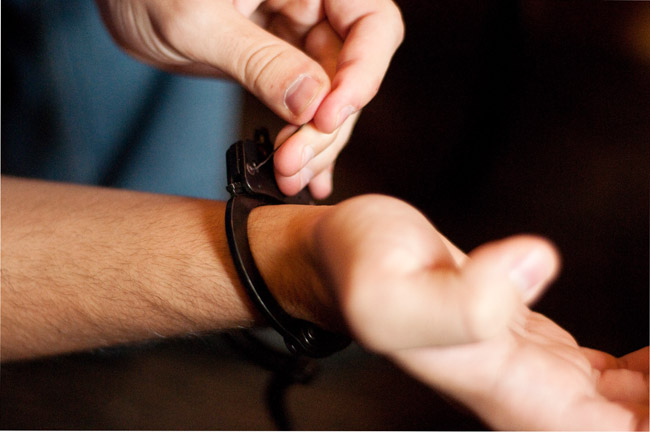“There are bike locks you can open with a cheap Bic pen,” Reid McKenzie, Longhorn Lockpicking Club officer, said just before breaking out of a pair of regulation Smith & Wesson handcuffs with nothing more than a hairpin.
A computer science freshman, McKenzie credited his involvement in lock picking to his interest in computer hacking. McKenzie said lock picking culture goes hand-in-hand with hacking, attracting the same audience of people.
“It’s a mechanical problem we enjoy solving,” he said.
Longhorn Lockpicking is a student group on campus that introduces people to the hobbies of picking locks, deconstructing locks, making keys and improving security. The officers of the club hope that by teaching people about the weaknesses of their security, they can take better steps to protect themselves.
“You have to make a decision about how much you want to invest in security,” McKenzie said. “Locks are meant to deter, not keep people out.”
In other words, there is no sense in securing a door with many different locks if someone can simply go through an unsecured window.
Longhorn Lockpicking is by no means the only way someone can learn how to crack a safe. Websites like deviating.net offer instructions for picking all sorts of locks and many have online stores for lock picking equipment. Longhorn Lockpicking sells a lock picking kit for $20 after a $20 membership fee.
“People are going to do it. It might as well be people who will use it honestly,” McKenzie said. “I trust everyone at our meetings.”
Despite the focus on security, some don’t see why such a club is even necessary on campus, especially when bike theft is the most prevalent crime at UT.
“I can see how they would justify it, but it’s not necessary to have a club like that,” advertising senior Brent Bulger said.
Bulger had his bicycle stolen earlier this year. He said that in order to prove to the lock company that the lock was broken through, the broken lock had to be mailed back to the company. If the lock is picked or if the thief takes the lock with them after stealing the bicycle, there is no evidence of entry or theft, he said.
McKenzie demonstrated how bike locks that use a circular key can be broken into very easily with a ballpoint pen. Taking the tip of the pen out of the plastic covering reveals the ink wrapped in gel, which can then be shoved into the lock, taking the form of the pillars and keeping the lock secure. A few twists and the lock is open. On the other hand, a bike lock that uses a flat key with angled edges is a much tougher for a potential thief.
“I’m not sure people would even be interested if there wasn’t this club recruiting and tabling around campus,” Bulger said, expressing concern that the club may be sparking curiosity rather than facilitating interest that already existed.
McKenzie said that the club upholds a strict code of ethics.
“Done right, this is still ethical,” he said. “People won’t see it that way, so we need a safe place to do it.”
McKenzie said that if he learned of any activity committed by someone in the club using their skills maliciously, the perpetrator would be kicked out of the club immediately.
“The caliber of person we attract is higher than that,” he said
Printed on Wednesday, October 3, 2012 as: Lock picking club encourages security





















